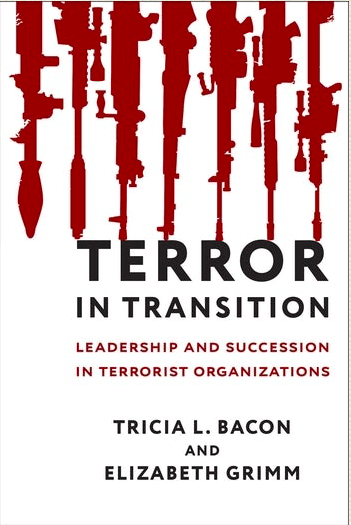A Georgetown University professor co-wrote a book on the different types of leaders who take over religious terrorist groups and how these groups sustain themselves during transitions of power.
Elizabeth Grimm, a director of teaching in Georgetown’s Center for Security Studies (CSS) and an undergraduate associate teaching professor in the Walsh School of Foreign Service, wrote “Terror in Transition: Leadership and Succession in Terrorist Organizations” alongside American University associate professor Tricia Bacon. In the book, which was published Sept. 13, Grimm and Bacon examine 33 terrorist groups including Sunni extremist group al-Qaeda in Iraq and the white nationalist Ku Klux Klan to analyze how terrorist groups manage and adapt to major shifts in leadership.
Grimm said she and Bacon chose to research and write about leaders of religious terrorist groups because of the fundamental role they play in influencing their followers.
“They often are imbued with a divine legitimacy in the eyes of their followers,” Grimm wrote to The Hoya. “Terrorist leaders are not just leaders of their organizations, but are perceived by the followers as religious or spiritual leaders as well.”
Grimm and Bacon identify five different types of leaders — caretakers, signalers, fixers, visionaries and figureheads — who differ in the degree to which they change their group’s ideology or operating tactics. For example, caretakers make relatively minor changes to either, while fixers conduct drastic overhauls of both.
The book explains that counterterrorism practitioners and other national security experts need to target terrorist groups from the top down in order to dismantle the whole organization, according to Grimm.

“Founders play a critical role in establishing the how (tactics/resource mobilization) and the why (the framing) of terrorist organizations, which set a baseline from which successors execute either incremental or discontinuous change,” Grimm wrote.
At a book talk hosted by the Center for Security Studies on Sept. 27, the authors presented to students about their work.
Gabrielle Ellicott (SFS ’25), who took “International Relations” with Grimm in Spring 2022 and attended the talk, said Grimm and Bacon’s book is groundbreaking in its approach.
“Being able to sit down and hear from Dr. Grimm and Dr. Bacon regarding their newest released book was fascinating to say the least,” Ellicott wrote to The Hoya. “They truly are the first in their field to write such an expansive and analytical work on terrorist leadership both past and present.”
When Grimm and Bacon began their research in 2018, they knew they wanted to examine leadership in terrorist groups. As they dug deeper, the direction of the book changed, Grimm said.
“Our initial interest was to examine terrorist leadership in between the large studies of effects of decapitation and singular profiles of individual leaders,” Grimm wrote to The Hoya. “It then expanded when we began to observe the critical role that terrorist founders play in their organizations, but that this role had not been significantly explored.”
Grimm’s book fills a gap in the scholarship on terrorist organizations, given the current lack of research that compares the types of leaders across groups, according to a review written by Brian Phillips in Small Wars Journal.
“Most studies of leadership decapitation have either been case studies of single groups, or quantitative global studies of hundreds of groups,” Phillips wrote in the review. “More generally, the terrorism literature has insufficiently analyzed individual leaders of militant organizations — in spite of their obvious importance, and regardless of whether they were killed. To address these issues, Terror in Transition makes a highly valuable contribution to the study of leadership of terrorist organizations.”
Grimm and Bacon’s work is transforming the knowledge educators and students have about the nature of leadership within terrorist organizations, according to Ellicott.
“I had no idea what an impact the founders of these terrorists organizations would have on their ultimate actions and timelines,” Ellicott wrote. “I’m so grateful to learn from Dr. Grimm and Dr. Bacon and cannot wait to see where their research takes them next. ”





















